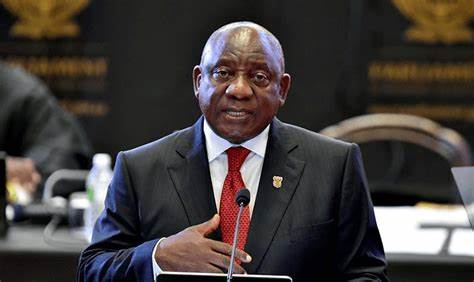President Cyril Ramaphosa delivered his State of the Nation Address on Thursday Night. In the Address delivered before Parliament in Cape Town the President spoke of unity and partnership, overcoming injustice. This was before he referred to the government’s plans for the year in regards to the management of municipalities, the focus on tackling load shedding, the power grid, poverty, the environment etc. The government under Ramaphosa needs to set its priorities straight. Among which is institutional reforms as exhibited in the Freedom Charter of Kliptown which is the corner stone of the country’s constitution. The president also referred to the new multipolar world in which new major nations are emerging to play a greater role in global affairs.
We will introduce a graduate recruitment scheme so that we may attract the best and the brightest into the public service. A capable state must start where people live and work. In many cities and towns across the country, roads are not maintained, water and electricity supply is often disrupted, refuse is not collected and sewage runs in the streets. In part this has happened because many municipalities lack the technical skills and resources required to meet people’s needs. Many municipalities have not reinvested the revenue they earn from these services into the upkeep of infrastructure. Starting this year, we will work with our municipalities to establish professionally managed, ring-fenced utilities for water and electricity services to ensure that there is adequate investment and maintenance. Many of the challenges in municipalities arise from the design of our local government system.
The President is going to improve the public service and clean up the cities. This will not be a simple task and requires a more delegative manner to improve the country’s political set up. Decentralising and delegating power from the National Executive Branch in Pretoria to the provinces and then to the municipalities, is a good way to make local and even provincial authorities accountable for their actions. Pretoria and the provinces should keep a recorded database on the conduct and performance of the municipalities. They should see which public servants, councillors and mayors are performing their jobs properly and who are not. There should be a disciplinary and oversight mechanism in place to see which government employee be it in national, provincial or local level is performing to his ability and potential. Improving local government training is a key component of public service.
We will invest in digital public infrastructure to give South Africans access to government services anytime, anywhere, through a relaunched gov.za platform. At the heart of this transformation will be the implementation of a digital identity system. These measures will transform the relationship between citizens and government, and create one government that is accessible to every person at a touch. We want a nation with a thriving economy that benefits all. To create this virtuous cycle of investment, growth and jobs, we must lift economic growth to above three percent. To achieve higher levels of economic growth we are undertaking massive investment in new infrastructure while upgrading and maintaining the infrastructure we have. We are developing innovative ways of funding infrastructure. We are engaging local and international financial institutions and investors to unlock R 100 billion in infrastructure financing.
The issue of a digital identity system raises some ethical questions concerning how it will be implemented. Ramaphosa says he wants to make the government more accessible to ordinary citizens. Does this plan to introduce digital public infrastructure involve creating a new form of digital finger print? Does it connect to the government monitoring every citizen in the country by their DNA? Their genetic coded fingerprints? Ramaphosa speaks about having one government accessible to every person “at a touch”. Does this mean a further centralization of power by the state? How is this going to lead to a thriving economy that benefits all? If Ramaphosa’s plan for the country is to lead it to Artificial Intelligence (AI) governance away from having a decentralization of delegating political power, how should the country respond? We are basically granting access to your genetic code by finger print to digital AI government (a super computer).
This is deliberately a new form of enslavement. Possibly worse than apartheid’s dompass. In the coming weeks government policy needs to be closely watched. The words of the SONA are a cause of concern than reassurance.
Article written by:
Yacoob Cassim
Journalist at Radio Al Ansaar






